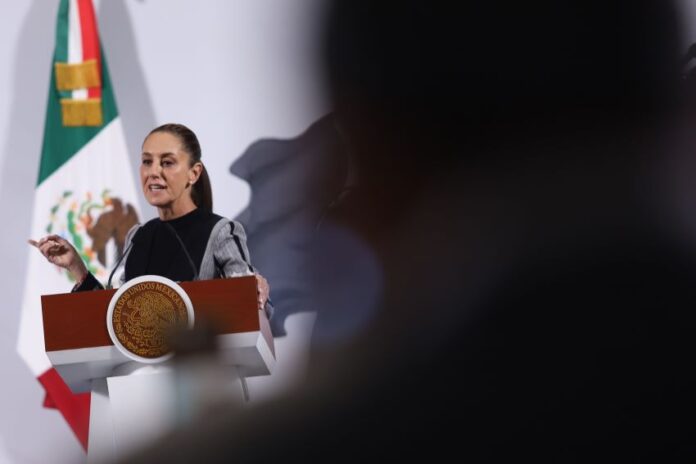On the eve of what U.S. President Donald Trump says is “Liberation Day” in the United States, President Claudia Sheinbaum said that her government is “ready” to respond to U.S. tariffs on Mexican exports.
At her Tuesday morning press conference, Sheinbaum also spoke about her plans for Mexico’s southern border and left the door open to more extraditions of cartel figures to the United States.
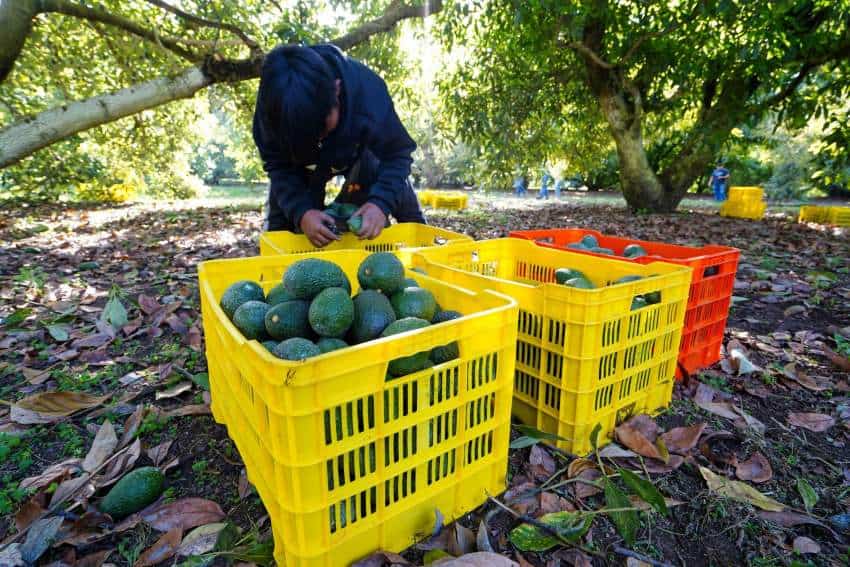
Sheinbaum: No certainty about US tariffs
Sheinbaum reiterated that her government will wait until April 3 to respond to the United States’ tariffs on imports from Mexico.
President Donald Trump is scheduled to announce “reciprocal tariffs” on imports from all its trading partners on Wednesday afternoon as he seeks to restore balance to what he sees as the longstanding unfair treatment of the United States.
Sheinbaum said that her government will wait to see “what is exactly the position that the United States government takes on April 2.”
“Know that we are ready,” she added.
“We meet two or three times a week with the [government’s economic] team to strengthen the different [retaliatory] measures. What we essentially want to do is protect the people of Mexico and employment,” Sheinbaum said.
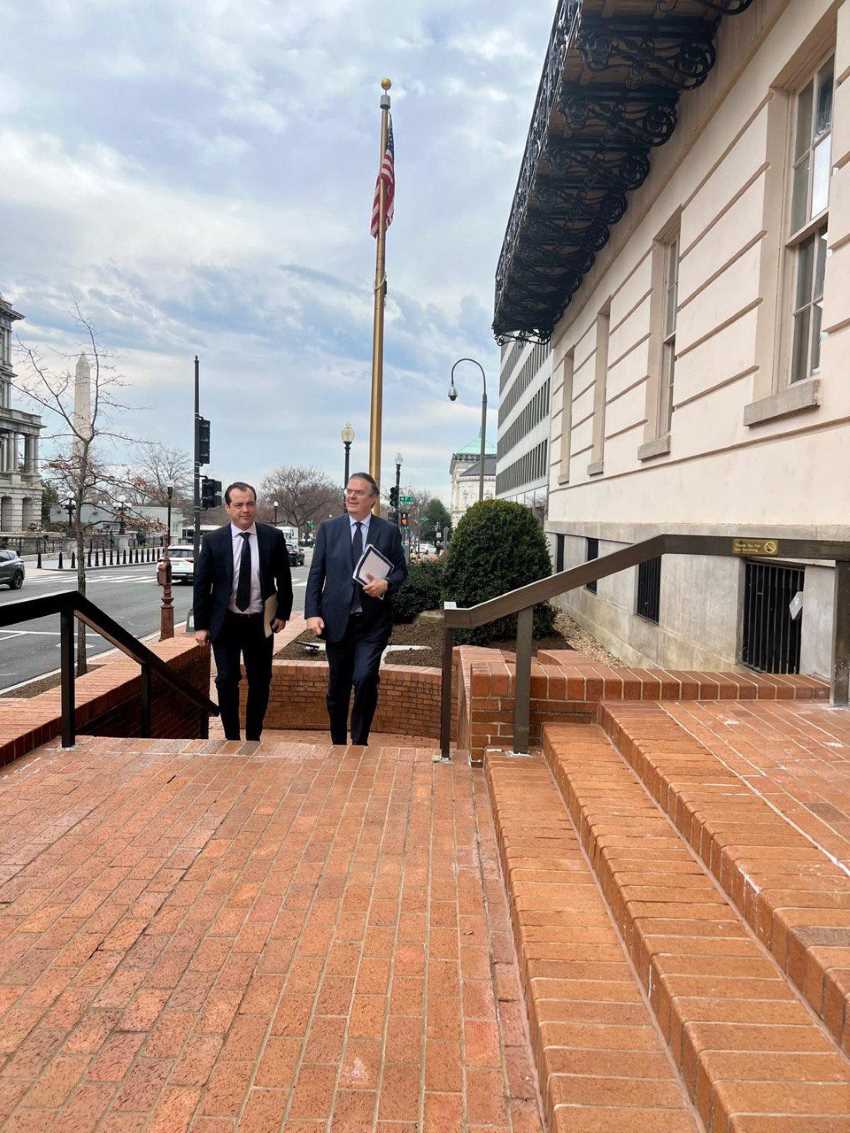
She said later in the press conference that her government doesn’t believe in “an eye for an eye” and “a tooth for a tooth” approach “because that always leads to a bad situation.”
It’s not a matter of tit-for-tat retaliation, but rather “what is best for Mexico,” said Sheinbaum, who has repeatedly spoken out against U.S. tariffs and is a strong advocate of the integration of the North American economy.
She stressed that Mexico and all other countries around the world have no “certainty” about the tariffs Trump will announce on Wednesday. Some reports have indicated that the United States could impose 20% across-the-board tariffs on imports, but that hasn’t been confirmed.
Sheinbaum said that U.S. tariffs — which have already been imposed on Mexican steel and aluminum and on Mexican goods not covered by the USMCA — place the North American free trade pact “in doubt.”
“If the USMCA says ‘no tariffs’ and there are tariffs, obviously the USMCA is not being complied with,” she said.
Sheinbaum favors development over soldiers on Mexico’s southern border
Sheinbaum said that in her meeting with United States Secretary of Homeland Security Kristi Noem last Friday, she told the U.S. official that “the best way” to attend to the issue of migration across Mexico’s southern border is to create “a development hub between Guatemala and Mexico.”
Her remark came after Noem told Fox News on Monday that the Trump administration wants Sheinbaum to “secure” Mexico’s southern border with Guatemala. The cabinet secretary said she conveyed that request to the Mexican president.
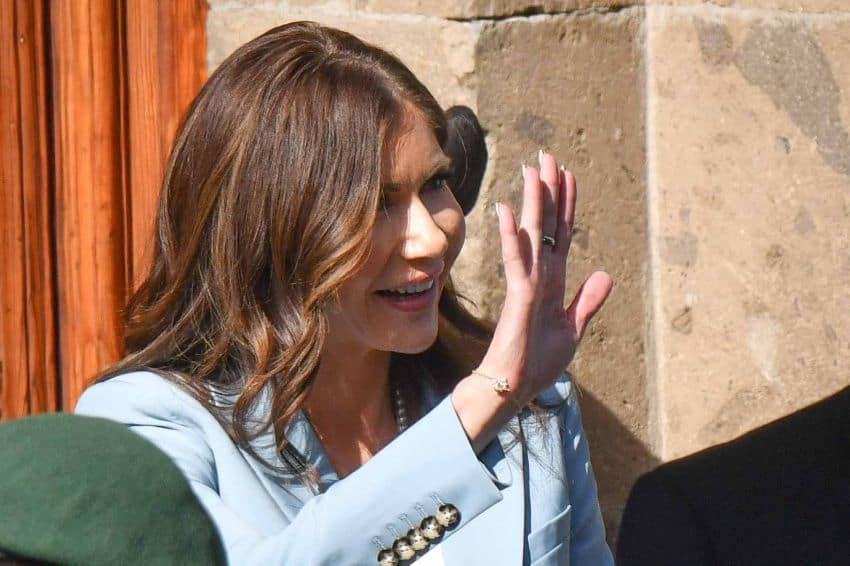
Sheinbaum said that the creation of a development hub, or industrial zone, on the southern border “is part of the project we have with the Interoceanic Train.”
That was a reference to the modernized railroad across the Isthmus of Tehuantepec and various branch lines, some of which are still under construction.
Sheinbaum noted that one line will go to Ciudad Hidalgo, Chiapas, on the Mexico-Guatemala border, and highlighted that her government is working with its Guatemalan counterpart to extend the line into Guatemala.
She said that the government is already in the process of developing two development hubs in Tapachula, a city just north of the border with Guatemala.
“Better that than having soldiers on the entire southern border,” Sheinbaum said.
The federal government is planning to create 10 industrial corridors spanning all 32 federal entities of Mexico as part of its efforts to spread national and foreign development more evenly across the whole country.
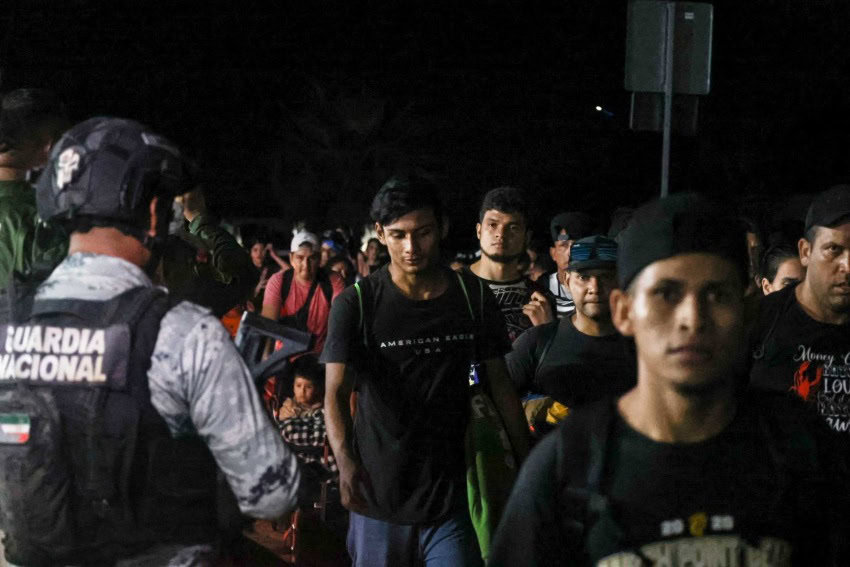
Sheinbaum also said that she told Noem about the government’s policy of carrying out “humanitarian rescues” of migrants, a euphemism for the detention of such people as they travel through Mexico en route to the United States.
The policy prevents migrants from reaching northern Mexico, she said, adding that the people are “attended to in our territory” — perhaps given a work visa and provided with assistance to find employment — or repatriated, if that is their wish.
On Monday, Noem also said that Sheinbaum “has an opportunity to do some things” — such as sharing information on criminal background checks for migrants — and suggested that doing so could help Mexico reach a deal with the U.S. to avoid tariffs on its exports to its northern neighbor.
On Tuesday, Sheinbaum stressed that she wouldn’t yield to pressure from the United States.
“We coordinate, but we do not subordinate ourselves,” she said, adding that she only “responds” to one authority — “the people of Mexico.”
More cartel figures could be extradited to the US
A reporter asked the president whether the United States has asked Mexico to extradite more cartel capos and criminals wanted in the U.S.
The United States has requested the extradition of a number of suspects in Mexico, Sheinbaum said, but noted that the request was made some time ago.
“To the extent that we can collaborate, we collaborate,” she said, highlighting that the government already extradited 29 cartel figures to the U.S. in late February.
Asked whether the extradition of people wanted in the United States could be expedited, Sheinbaum said that depended on the “joint work” of Mexico and its U.S. neighbor.
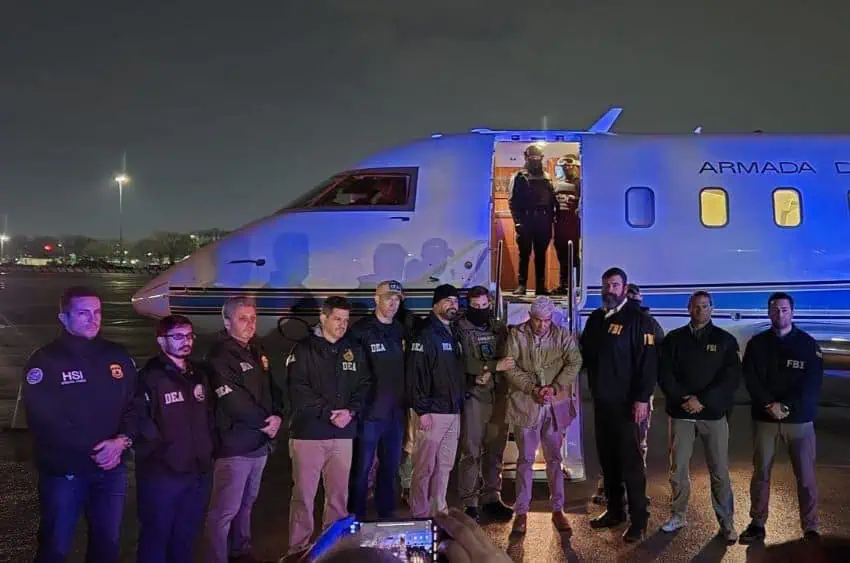
“No special request has been made,” she added.
The Milenio newspaper reported on Tuesday that the United States has its sights set on the extradition of another 29 drug traffickers in Mexico, 18 of whom are already in custody.
Those wanted in the U.S. include alleged members of criminal organizations such as the Sinaloa Cartel and the Jalisco New Generation Cartel.
By Mexico News Daily chief staff writer Peter Davies (peter.davies@mexiconewsdaily.com)
